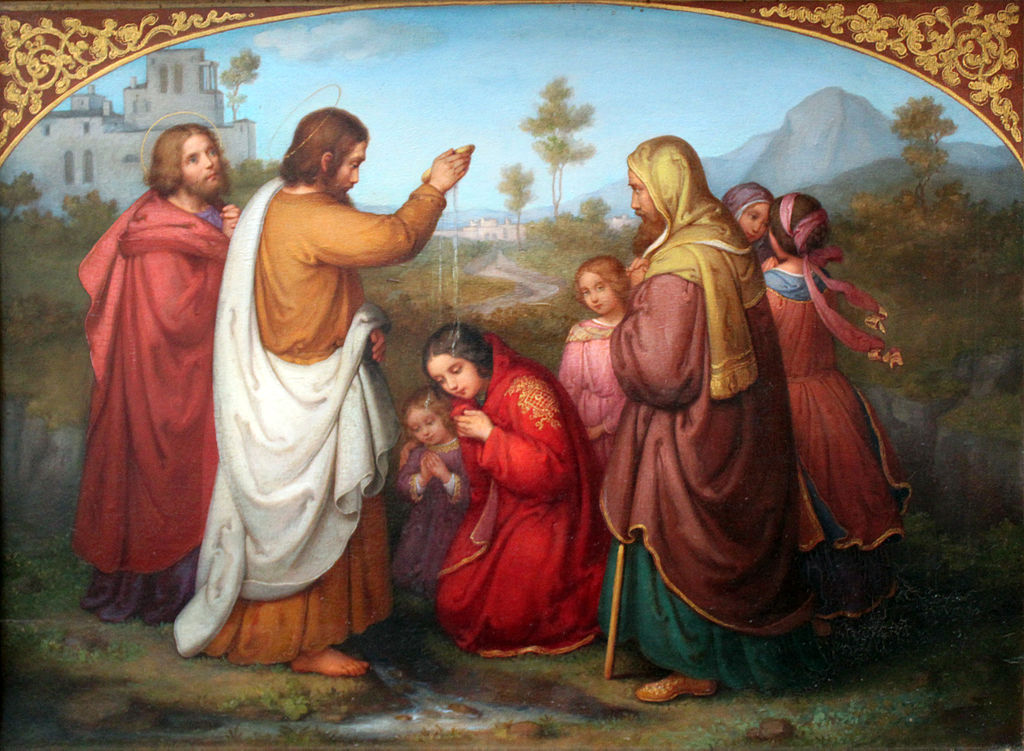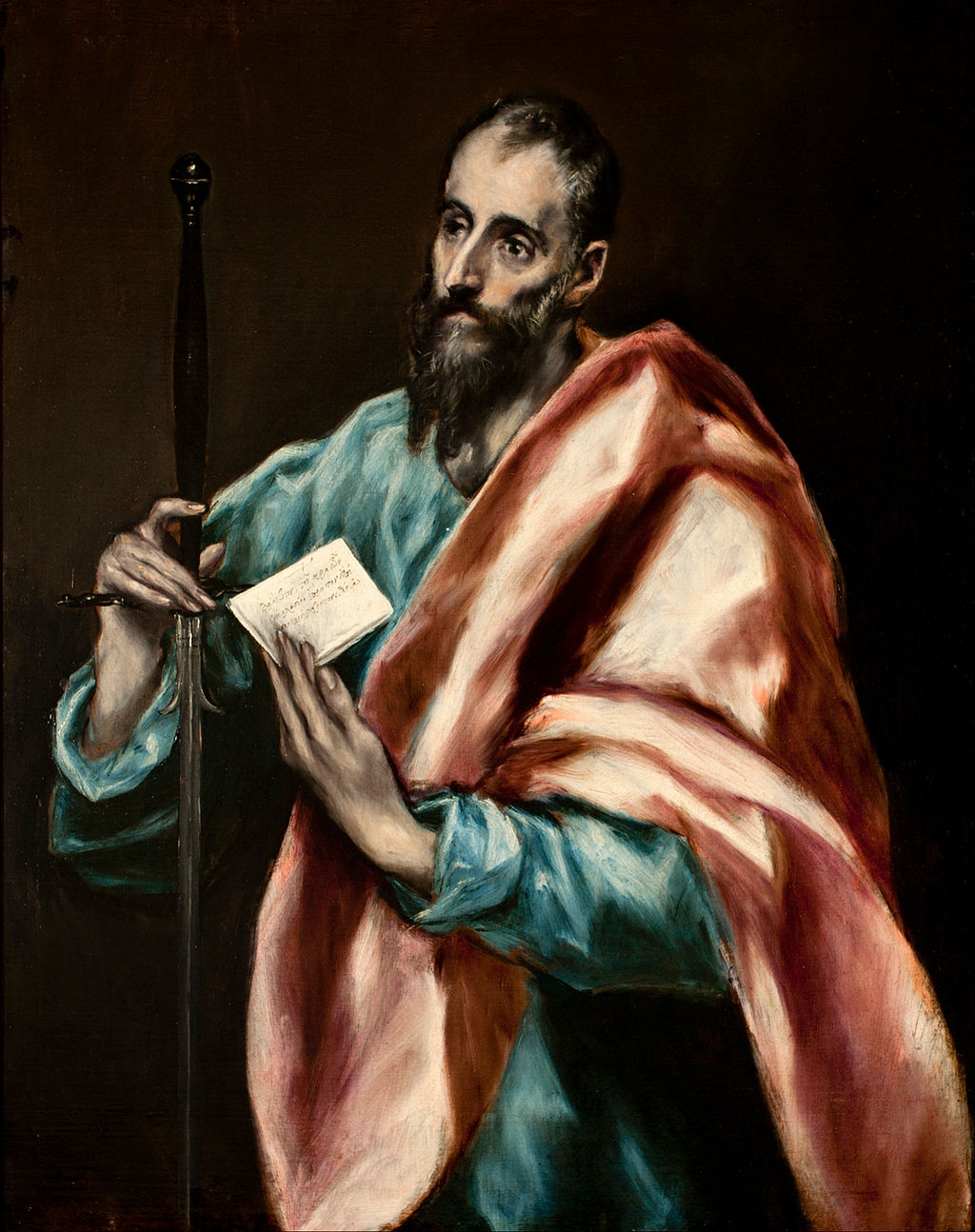Sixth Sunday of Easter
HELP! I NEED SOMEBODY!
Acts 16: 9-15
Sixth Sunday of Easter
Analysis by Timothy Hoyer
9During the night Paul had a vision: there stood a man of Macedonia pleading with him and saying, “Come over to Macedonia and help us.” 10When he had seen the vision, we immediately tried to cross over to Macedonia, being convinced that God had called us to proclaim the good news to them. 11We set sail from Troas and took a straight course to Samothrace, the following day to Neapolis, 12and from there to Philippi, which is a leading city of the district of Macedonia and a Roman colony. We remained in this city for some days. 13On the sabbath day we went outside the gate by the river, where we supposed there was a place of prayer; and we sat down and spoke to the women who had gathered there. 14A certain woman named Lydia, a worshiper of God, was listening to us; she was from the city of Thyatira and a dealer in purple cloth. The Lord opened her heart to listen eagerly to what was said by Paul. 15When she and her household were baptized, she urged us, saying, “If you have judged me to be faithful to the Lord, come and stay at my home.” And she prevailed upon us.

Baptism of Lydia by Marie Ellenrieder, 1861. Found on Wikipedia
As “a dealer of purple cloth,” Lydia knew how life was based on transactions, on buying and selling. … Maybe Paul told her about how in Jesus God does not work in transactions but gives gifts; how God does not equate our worth with what we produce but gives us the worth of being connected to Jesus.
DIAGNOSIS: I DON’T NEED YOUR HELP
Step 1: Initial Diagnosis (External Problem): Better People Don’t Need to Ask for Help
Grounding: The man of Macedonia asked for help. Paul did not wonder if “help” meant help paying the rent or help fixing roofs damaged by an earthquake. Paul knew that “help” meant “to proclaim the good news to them.” Of course, Luke, the author of Acts, had a definition for “good news.” Luke had been saying what that good news could be found all through the Gospel according to St. Luke and in the more recent events in Acts. For example, when Peter preached, “We are witnesses to all that he did both in Judea and in Jerusalem. They put him to death by hanging him on a tree; but God raised him on the third day…. He commanded us to preach to the people and to testify that he is the one ordained by God as judge of the living and the dead” (Acts 10:39-42).
Tracking: We get uncomfortable when we have to ask for help. Usual little things that we need help with don’t bother us. But to ask for help to get up a set of steps? To ask for help because we can’t drive ourselves to a doctor’s appointment? To ask for help to pay the electric bill? It doesn’t feel good to ask for help. We are taught that we need to take care of ourselves, to be self-sufficient. From the time we can form the words—without even being told, we insist, “I do it myself!”
Step 2: Advanced Diagnosis (Internal Problem): Our Faith is in Our Being Capable
Grounding: Paul helped people by speaking of Jesus who made people right with God by his death and rising. One person and her household were joined to Jesus by baptism.
Tracking: Just as we don’t like asking for help, we also believe we don’t need help in how we relate to God. God does God’s things, we do our things, what do we need help for? Help in our relationship with God is not on our list of things we need. We are busy with what we have to do to meet our basic needs. We are busy with putting some fun in our lives. We are busy with fulfilling all the demands put on us for how to have a good life or be a good parent. Who has time to sit around and listen to a person talk about someone who rose from the dead? How can that be of any help to us?
Step 3: Final Diagnosis (Eternal Problem): We Refuse to See We Need Help From God
Grounding: Lydia was a worshiper of God. But she did not know about God as the God who raised his Son from the dead. Lydia did not know about God as the God who gave forgiveness for the sake of his Son who died and rose for all people. She needed help.
Tracking: Who goes around asking for help with their relationship with God? Few people think they have a relationship with God. In America, God is assumed to be a God of love, so we don’t need to worry about God. Yet why do we feel uncomfortable asking for help? Why does that make us feel we are not able to do what we are supposed to? Why does our inability feel like judgment? Why does the inevitability of death make us judge all we have done in our life? Who wants to think they are accountable to God? If we are accountable, is there any help for us? Do we think that such help is even possible? Not that we would ask for help.
PROGNOSIS: WE TRUST JESUS TO HELP US
Step 4: Initial Prognosis (Eternal Solution): Jesus is God’s Gift of Salvation (Help)
Grounding and Tracking: Lydia listened to Paul, but what Paul said to her is not revealed to us. Instead, we can take what Paul told others about Jesus’ death and rising and apply them as what he said to Lydia. As Lydia was “a dealer of purple cloth,” she knew how life was based on transactions, on buying and selling, of getting what you paid for, of paying according to the quality of the merchandise, and probably how women in business had to deal with the prejudices of men against women and their abilities. Paul might have told her about how in Jesus God does not work in transactions but gives gifts; how God does not equate our worth with what we produce but gives us the worth of being connected to Jesus; how God does not measure our quality and say one person is more important to God than another, but that in Jesus, our quality is to be brothers and sisters of Jesus. It is Jesus who makes the final evaluation of each and every person, and his evaluation is to die and rise for us to forgive us and make us right with God.
Crossing: As Paul told Lydia about how Jesus’ evaluation of us is the only one that matters to God, we can proclaim that good news to the people who listen to us. We take the experiences in their lives that buy and sell their worth, and tell them that in Jesus, the one who died and rose from the dead, they have been declared worth everything to God because of him.
Step 5: Advanced Prognosis (Internal Solution): Our Faith is in Jesus Who Was Capable of Dying on a Cross
Grounding: Lydia received help. Paul helped her by telling her what Jesus had done for all people. The Lord opened her heart. She received faith in Jesus.
Crossing: The news of Jesus dying and rising for all people opens our hearts to trust Jesus for life and worth and for living in his way of grace and gift, instead of having to trust in the way of buying and selling.
Step 6: Final Prognosis (External Solution): We Serve as Those Who Are Being Helped
Grounding: Lydia offered to help Paul by allowing him stay at her house: “She prevailed upon us.” Life in Jesus means that people receive the gift of help.
Crossing: Life in Jesus frees us to ask for help because asking for help no longer devalues us or makes us less important. Sure, others without faith may continue to not pay us as much respect as they used to, but their judgment does not have to be trusted. We have Jesus’ judgment, and to him we are worth his life. In our weakness, we are strong in Jesus. In our lack of importance to others, we are essential to Jesus. And when we are asked for help, we give help, not from a position of being better or richer or more capable. We give help from a place of faith, a place of having been helped, so we know we are just the same as the one who is asking for help.
